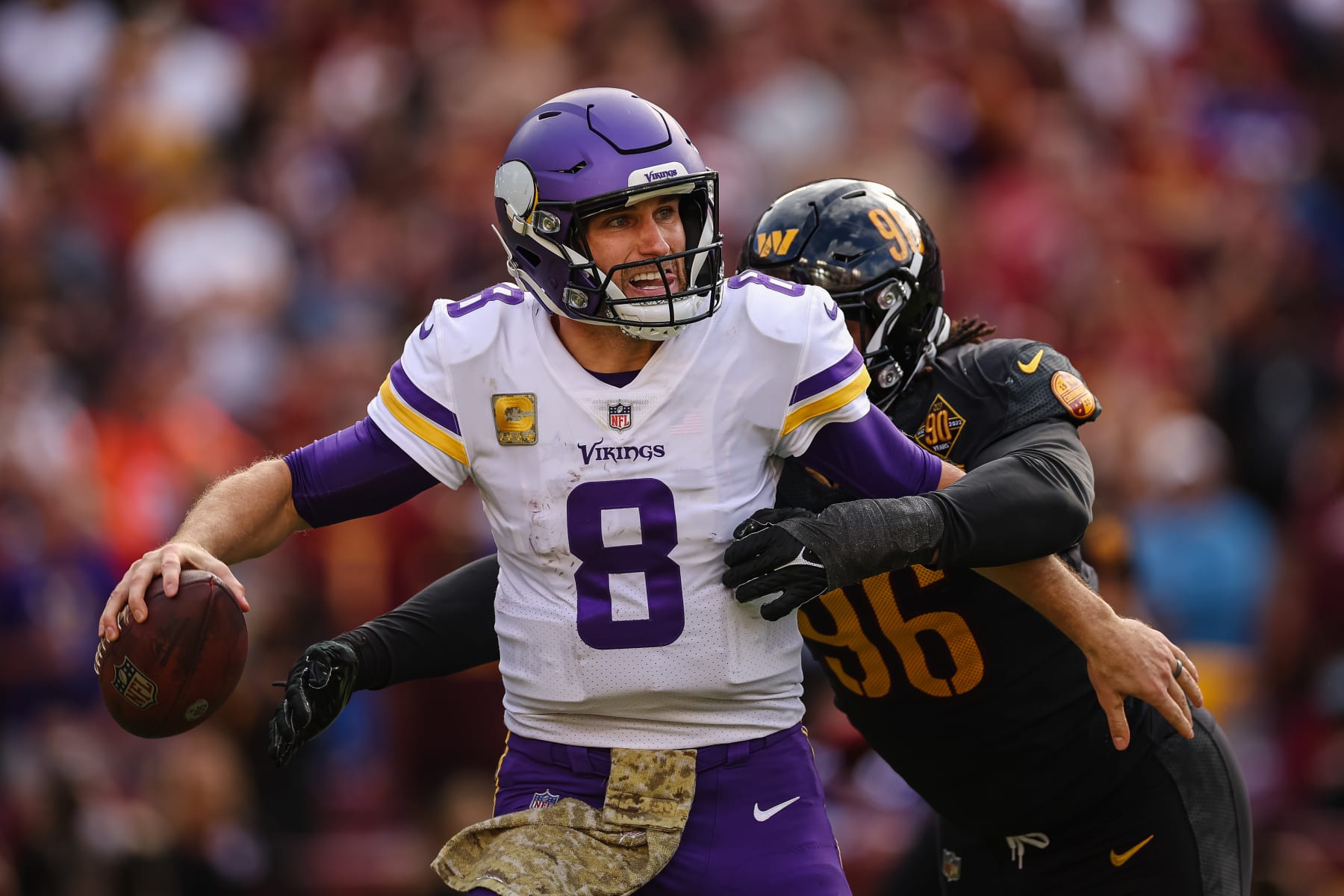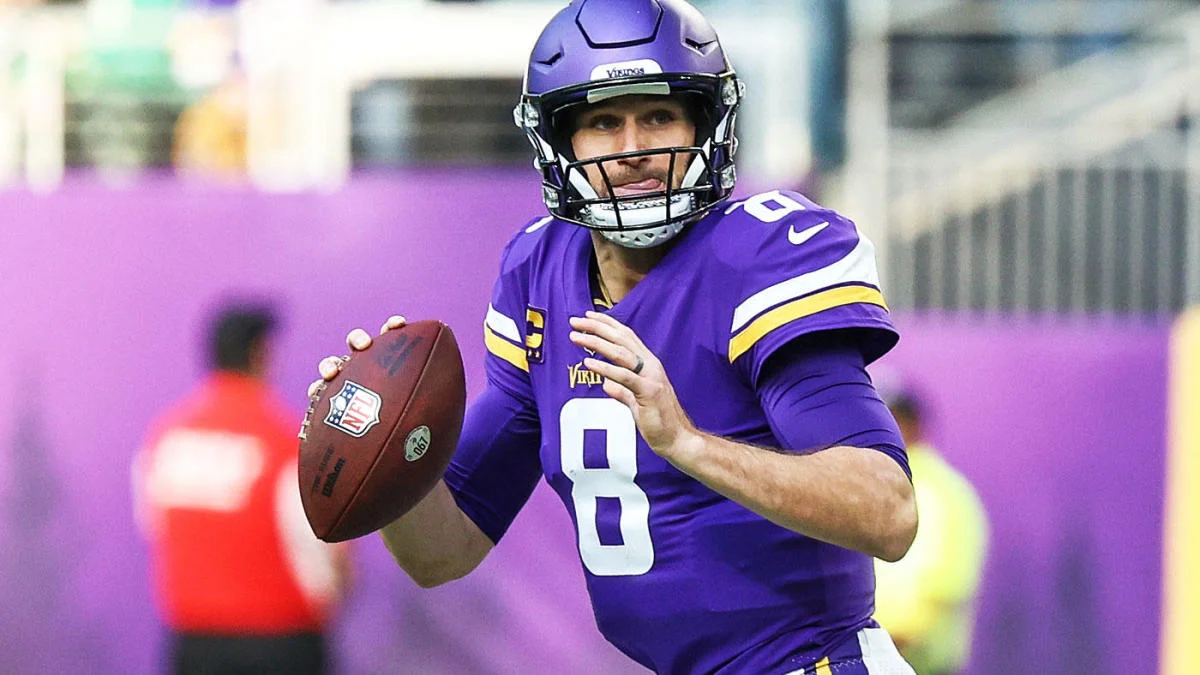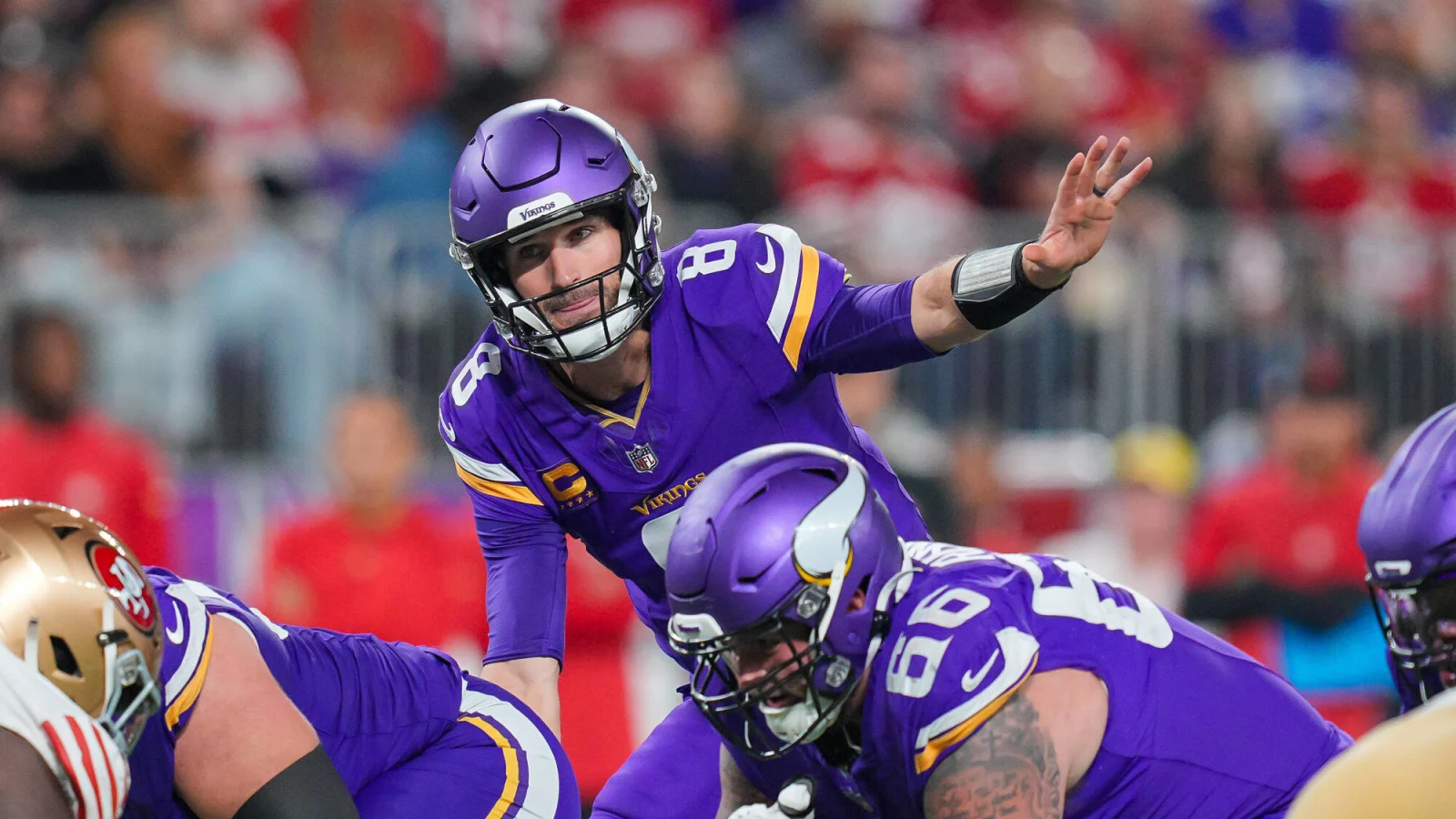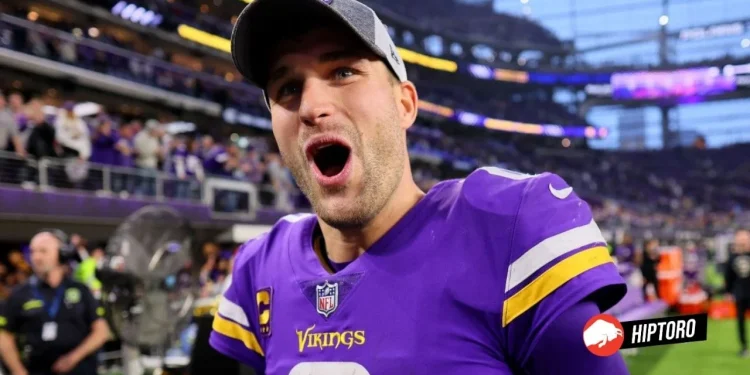In the heart of Atlanta, as the Atlanta Falcons prepared to welcome their new quarterback, Kirk Cousins, a seemingly trivial yet intensely debated topic emerged: Who would claim the coveted #8 jersey? The number, steeped in personal significance for both Kyle Pitts, the Falcons’ tight end, and Cousins, became the center of an unexpected saga that caught the attention of fans and media alike.

Kirk Cousins, Kyle Pitts and Atlanta Falcons Controversy
Kyle Pitts, since he entered into the league, has been synonymous with the number #8, a digit he adorned with pride and distinction. Kirk Cousins, on the other hand, carried the same number throughout his tenure with the Vikings, adding layers to the unfolding drama.
As speculation mounted, Pitts fanned the flames by tweeting a picture of himself in #84, a nod to his college days with the Florida Gators, igniting further discussion among the Falcons’ faithful.

The plot thickened when it was revealed that Cordarrelle Patterson, another key player for the Falcons, already had claimed #84, leading Pitts to initially choose #8. The stage was set for a negotiation that would involve not just the players but also the league’s stringent policies.
Kirk Cousins’ Big Decision
In an exclusive reveal on The Big Podcast with Shaq, Kirk Cousins shared the behind-the-scenes story of the jersey number discussion with Shaquille O’Neal, shedding light on a decision that was more complex than fans might have anticipated.
The crux of the matter came down to the NFL’s policy requiring players to buy out the inventory of their existing jerseys should they decide to change numbers.
Cousins, known for his practical approach to finances, balked at the hefty price tag attached to the switch—a move that would require both him and Pitts to fork out several hundred thousand dollars.
Kirk Cousins reveals why he didn't take the No. 8 jersey in Atlantahttps://t.co/CLuMt8tk1m
— Bring Me The Sports (@BMTNSports) April 5, 2024
“So he wanted to switch numbers anyway. It was like a perfect fit… And then the league spoke into it,” Cousins revealed. The financial implications of the switch proved too steep, leading to a mutual agreement that would see Pitts retain #8 and Cousins adopt #18, a number with which he felt equally content.
The Cost of Change
This jersey number saga highlights a lesser-known NFL rule that has significant financial implications for players contemplating a number change.
The policy, designed to mitigate the impact on merchandise inventory, underscores the league’s commitment to its commercial interests, often at the expense of personal player preferences.
Cousins’ candid admission about the decision process provides a rare glimpse into the practical considerations that influence players’ choices off the field.
His pragmatic approach to the situation, driven by an understanding of the financial burden associated with the change, speaks volumes about the balancing act players often have to perform.

A Number is Just a Number
As the dust settles on the jersey number debate in Atlanta, both Kirk Cousins and Kyle Pitts have embraced their respective numbers, #18 and #8, with a renewed sense of purpose. The episode, while seemingly trivial, sheds light on the complexities and financial realities underlying professional sports’ glitzy exterior.
For Cousins and Pitts, the numbers on their jerseys will undoubtedly become symbols of their adaptability and teamwork, qualities that will serve them well as they embark on their journey with the Falcons.
As the new season approaches, fans are reminded that while numbers may hold sentimental value, it is the players’ performances on the field that truly define their legacy.

Source: yardbarker









